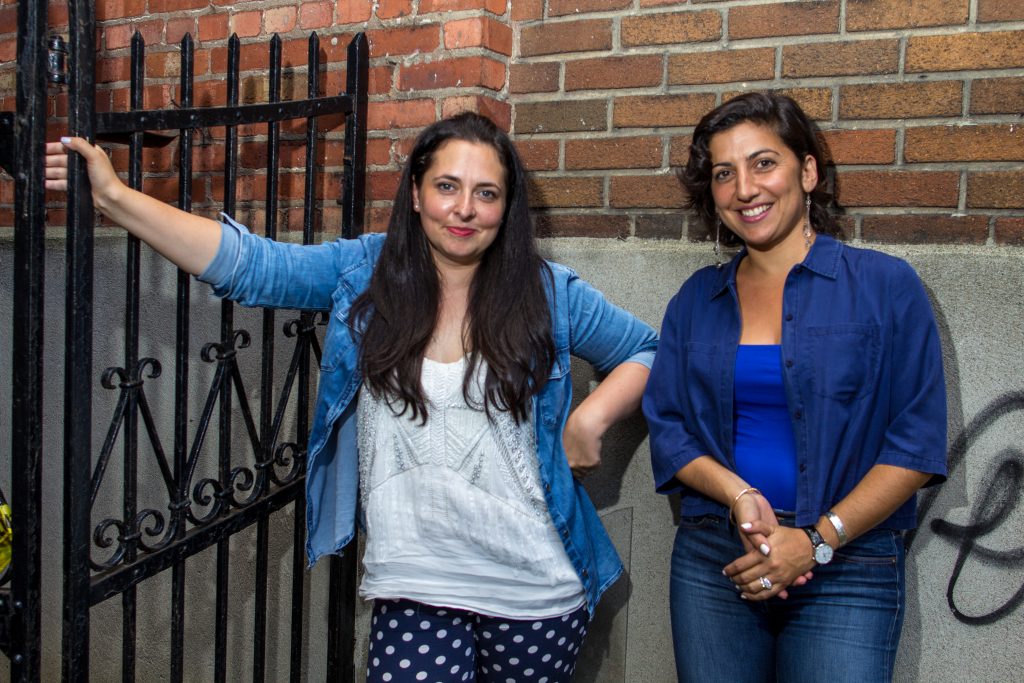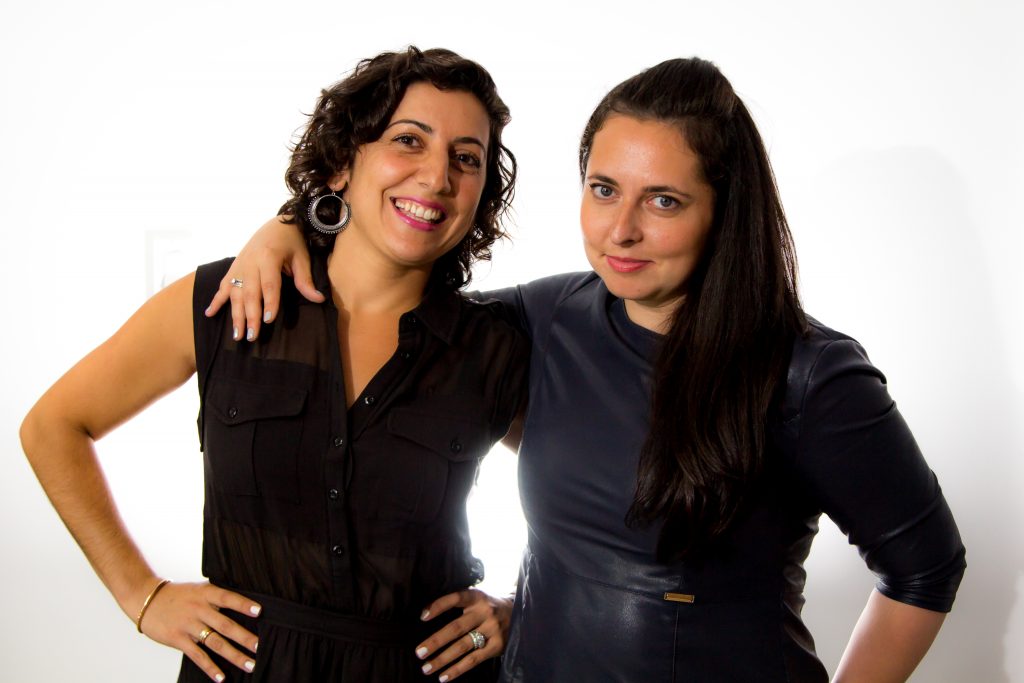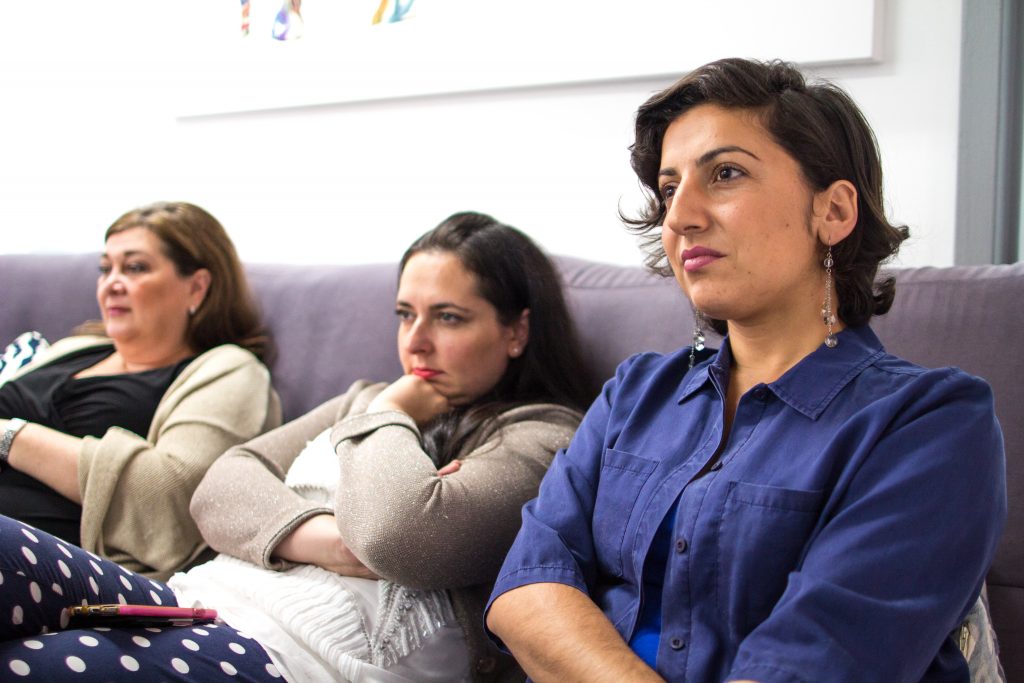Project Octane: Hustle & Heart
October 13, 2016
When it comes to running a business, there is no go-to manual for greatness or a secret recipe for success. There are, however, key ingredients that can contribute to entrepreneurial excellence. As EO Montréal’s Moranne Elarar and Marina Byezhanova can attest, it all starts with hustle and heart. In this special interview, the co-founders of Pronexia—a new generation recruitment firm—open up about their bootstrapping days, their unique hiring methodology, and the role authenticity plays when building relationships and company culture.

You have markedly different upbringings, yet you were united through entrepreneurship. How did you come together to form Pronexia?
MB/ “I was born in the Soviet Union and raised by very traditional parents. My mother has two college degrees and my father has a doctorate, so their vision of success for me was to go to a good school and climb the corporate ladder. It was all I knew. The concept of entrepreneurship was never on my radar. When we came to Montréal in 1998, I enrolled in McGill University and earned a marketing degree. Soon after, I landed a sales job that had me fielding 150 calls a day. I worked my way up to the 18th floor, where I had an office and a view of the Montréal skyline. In my parents’ eyes, I had ‘made it,’ but I knew it wasn’t the right fit for me. When I quit, my manager told me about a new position he thought might suit me better, but I had already made up my mind. I went on to work for a recruitment firm, still oblivious to the idea of entrepreneurship. That is, until fate stepped in … and her name was Moranne.”
ME/ “Even though Marina and I hail from different families and backgrounds, we arrived at the same entrepreneurial destination together. Almost literally. We didn’t find out until years later, but we landed in Montréal in the same month. Marina was coming from Ukraine, a country that was searching for its identity, and I was leaving Vancouver to find my own. I grew up in an entrepreneurial family, so that instinct to start a business has always been in my DNA. My family is originally from Israel, and my father has owned several companies in the manufacturing industry. I knew I would follow in his footsteps one day, but I didn’t know how or when. As it turned out, I got the job that Marina had turned down. A few years later, I started working at the same recruitment firm. Before long, we were colleagues sharing the same failure-is-not-an-option mentality.
“It wasn’t until my first maternity leave that I started to really think about fulfilling my entrepreneurial goals. I wasn’t sure what I wanted to do, exactly, but I knew I wanted to work for myself. Against everyone’s advice, I decided to seek out a business partner. I knew in my heart that it had to be Marina. It seemed evident that our compatibility could get any new business off the ground. It was good timing, too, because Marina had just found out she was pregnant. I remember thinking, ‘This is perfect. Her emotions are all over the place, she’s going to take a break from work … now I can convince her!’ We kicked around different ideas, from starting a daycare to catering. With my years of experience in sales, partnership management and marketing, and Marina’s decade’s worth of recruitment knowledge, we decided to start our own recruitment firm. Before long, another baby was born— Pronexia.”

What were your bootstrapping days like, and how did those experiences help shape the identity of your business?
ME/ “When we started out in 2010, we were the definition of bootstrapping entrepreneurs. We didn’t take out any loans, our first hire was a part-time employee working 10 hours a week, and we picked our business name out of a lineup my father bought the domain name rights to years before. We had very few resources to get us off the ground, but what we did have was a lot of hustle and heart. What we lacked in capital we more than made up for in determination. We hustled our way from concept to company, leveraging our experiences, relationship-building skills and energy to excel at all costs. Our shared commitment to unapologetically innovate formed the framework for our business. We sought to change the mindset of modern recruitment. We wanted to introduce a more human approach to the hiring process, one that put people first. That became the backbone of our business model.”
MB/ “I think the term ‘bootstrapping’ has become a buzzword these days. A lot of people think that all you need is an idea and capital to make it as an entrepreneur, but it’s so much more than that. Like Moranne said, entrepreneurship is all about the hustle that occurs behind the scenes; the never-ending push to find your niche, develop your identity, and change the game through passion and purpose. In many ways, Pronexia is the byproduct of our never-back-down mentality. The 20-hour days, scrounging for funds to pay our bills, staffing our small business as we helped big companies staff their own … all of our energy, sweaty equity and curse words served as bricks for our entrepreneurial estate. It wasn’t always easy, but it was always worth it.”
Authenticity is baked into everything you do. What role does this core value play in your business and recruitment methodology?
ME/ “We don’t approach core values the way a lot of businesses do. We don’t have our values front and center for every employee to see, or laminated in poster form on the wall to serve as inspiration. These things may work for a lot of companies, but we’re committed to hiring for culture. The building blocks of our culture include transparency, brutal honesty and, above all, authenticity. By committing to these drivers, we can reinforce what Pronexia is all about while staying true to our vision. By being authentic, our employees and clients know exactly where we stand at all times. It has helped us build a healthy workplace, as well as exclusive partnerships with top employers and job seekers across Canada. Authenticity is the heartbeat of our business.”
MB/ “An example of our commitment to authenticity is when Moranne turned down one of our first clients for not aligning with our values. In the beginning, when we were still struggling, we landed an account with a top technology company. It was a huge client, the kind that could make us a household name in our industry. Early on in the relationship, we discovered that one of the employees we placed had been fired in an unprofessional way. After learning more about how she was treated, we ended our relationship with the client. It was a risky move, but we were adamant about sticking to our values. We didn’t know it at the time, but that decision served as a defining moment for Pronexia. We were telling the world that we are committed to raising the standards of our industry. When other businesses learned of our decision, it paved the way for bigger and better things.”
As a new voice in recruitment, you’ve adopted an innovative approach to hiring. How does this people-first model help you stand out?
ME/ “We founded Pronexia with the aim of changing the face of the industry. We wanted to lead a new school of hiring. Our goal was to introduce a more innovative recruitment model, one that emphasizes quality over quantity. When you get down to it, recruitment isn’t about job openings— it’s about people. We stand out by building connections. We’ve built a community based on this personal touch. Finding the perfect match has more to do with personality than it does with in-print experience. In our minds, ‘fit’ always comes first. You can teach skills, but you can’t teach passion.”
MB/ “The core of our recruitment methodology lies in the marriage of new school techniques and trends, with the traditional way of working. Moranne and I are Millennials, as are most of our staff, so social media, digital strategy and technology is integral to everything we do. Rather than adopt old-school recruitment practices—like leveraging traditional media, mass email campaigns and conference calls—we focus on the human side of hiring, establishing a connection with clients and job seekers through ongoing dialogue, unfiltered transparency and honesty. We respect the old-school approach to recruitment, but we refuse to settle for mediocrity.”
ME/ “Our business is built on a strong entrepreneurial drive and a methodology that values people above performance. Our job is to understand who our candidates are so that we can pair them with the company that best aligns with their values. We do the same thing in our business. Work history is important, but we seek to understand the DNA of each person that walks through our door before we can determine if they’re a great fit for our company. As a result, we’ve been able to hire and retain the best recruitment consultants in the industry.”

Looking back at your bootstrapping journey, what are some best practices you can share with your EO peers?
ME/ “Commit to culture. There’s no ‘secret sauce’ for retention, but making culture a priority is a big first step. Most of the people we’ve placed are looking for something more than a paycheck; they want a job that lets them be creative and fosters trust and respect. Money is usually the last topic on the table. When you make culture a priority, everything else falls into place. That’s what we seek when working with prospective clients. We only engage companies whose values are focused on optimizing internal culture. We visit every client office for a company culture audit, and we don’t hesitate to fire clients who do not pass our quality check. Above all, we only pitch people on the companies we would personally interview for.”
MB/ “Culture also extends to understanding your employees. Generally speaking, we continue to learn more about how to hire and retain Millennials. The common thought is that they’re lazy, entitled, have unrealistic expectations and no work ethic. It’s simply not true. What’s great about Millennials is that their way of thinking aligns perfectly with entrepreneurial businesses, which makes it easier to hire and engage them. They don’t have the old expectations of having to climb the corporate ladder. Instead, they expect to be challenged, motivated, to have diversity in their work and to wear many hats, which is beneficial for small businesses. Millennials also like odd job titles. They want to be a growth hacker and an evangelist of something, and it may sound funny, but it costs nothing to implement. They are often more excited about that than a higher salary or annual raises!”
ME/ “We keep coming back to that word ‘hustle,’ which is a perfect way to describe how we arrived at this entrepreneurial destination. We’re always hustling to keep our culture top of mind, to work with only the best companies and to keep growing as leaders. We still have a long way to go and many more mistakes to make, but that’s part of the journey. Everyone in EO can relate, because they’ve been through the ups and downs of entrepreneurship and have the scars to prove it. What this journey has taught us is to never give up. Put your passions first, invest in your people, create a culture that inspires innovation and never, ever stop hustling.”